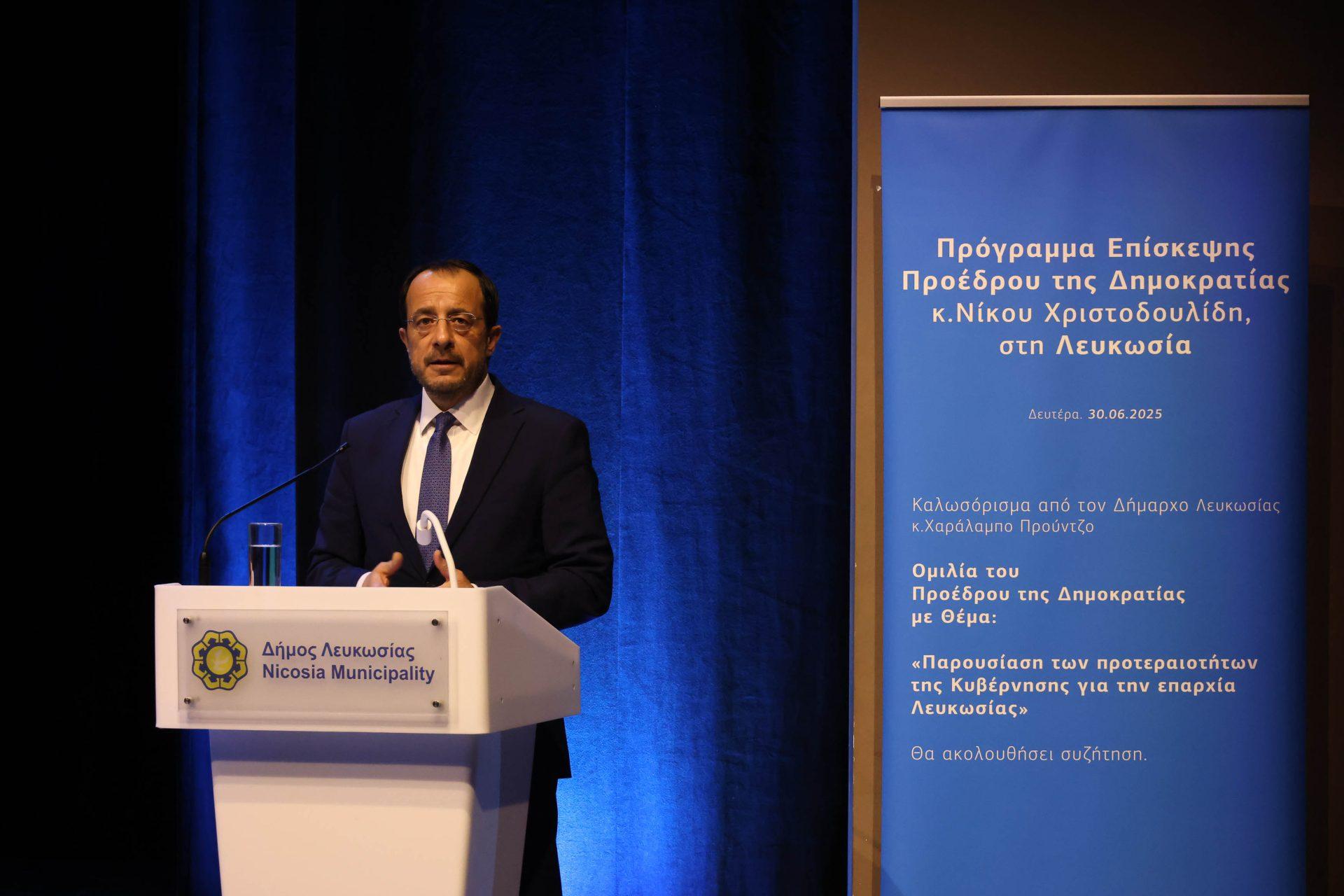On Monday, June 30, Cypriot President Nicos Christodoulides unveiled ambitious plans to transform the capital city of Nicosia.
As part of the program to modernize and sustainably develop Nicosia and its suburbs, 80 projects worth over €1 billion will be implemented.
Speaking at a conference at the University of Nicosia, Christodoulides noted that, despite its enormous potential and strategic importance, Nicosia faces problems typical of modern megacities, such as housing shortages, traffic jams, and insufficient social cohesion. Christodoulides stressed that Nicosia remains a key player in areas such as education, scientific research, and the service sector, which is why the state is investing in its qualitative transformation.
Despite its great potential and opportunities for development, Nicosia faces challenges common to all modern urban centers. Nicosia plays a key role in the service, education, and research sectors and therefore needs government support, Christodoulides said.
According to the president, the focus will be on housing, transportation, healthcare, education, culture, and the environment. Priority areas include developing urban infrastructure, constructing new student dormitories and innovative spaces, and creating conditions for the sustainable development of areas close to the historic center. A special committee will be set up by early 2026 to work out the details of the projects and allocate the budget.
Significant changes are also expected in the cultural sphere. One symbol of the upcoming transformation will be the new €144 million Archaeological Museum. It is scheduled to open in 2028. The government has signed an agreement with the Nicosia municipality to preserve and modernize urban monuments. These include the Famagusta Gate, the Municipal Theater, and the Ledra archaeological site, which will soon be open to visitors.
Educational reform will cover general and specialized education. Starting in the new school year, the full-day school program will expand. Sixty new institutions will begin operating under this format, twenty-five of which are in Nicosia. By 2028, this model will cover the entire country. The Agios Stylianos Lyceum will be the first technical gymnasium pilot program, and a new applied arts school will open in the Dali district. As part of a climate initiative, 25 educational institutions, five of which are in the capital, will be converted into energy-neutral buildings. A branch of Kapodistrian University of Athens will also open in Nicosia. Construction of 380 residential units is planned for students of this institution.
The country's budget will allocate €15 million for this purpose. The medical sector will not be left behind, either. The Central Hospital of Nicosia will receive new neurological and stroke departments. The total investment in this project will be €14.5 million. Makarios Hospital will have updated pediatric emergency and oncology services.

The plans also address transport issues.
The motorways connecting Nicosia to Troodos and Palechori will be modernized. The work is scheduled for completion by early 2027. The president mentioned a new 6.2-kilometer road that will connect Tserri and Strovolos. The road will include bike lanes, green areas, and a bridge. In parallel, measures will be implemented to improve water use and waste disposal and to create environmentally friendly areas. Special attention will be given to protecting the city from the effects of climate change. Flood prevention projects are underway in Ayia Omologites, Pallouriotissa, and Likavitos and are expected to be finished by 2026.
The development of sports infrastructure in Nicosia is among the government's priorities. Plans include renovating the Aglantzia swimming pool and modernizing the Makarios Sports Center.
The refugee issue has not been overlooked either. Christodoulidis announced that the €26.5 million Purnara camp project is almost complete. It will be ready for use by summer and can accommodate up to 2,000 people.
The European Union has provided all of the funding. New medical centers and emergency services will be set up inside the camp. New social initiatives include the creation of a day care center for people with disabilities over the age of 21 and two residential homes for people with autism. The Eurobank Group is supporting these projects, which will be coordinated by the Ministry of Social Welfare. Another day care program will soon be submitted to the Cabinet for consideration.
In closing his speech, the President of Cyprus emphasized that Nicosia's development must be accompanied by support for its rural and mountainous surroundings. To this end, local authorities will receive grants totaling €2.5 million, and the private sector will receive €370,000 in support.
